World Geography And Politics Daily News | 28 Jun 2023

Views (144)
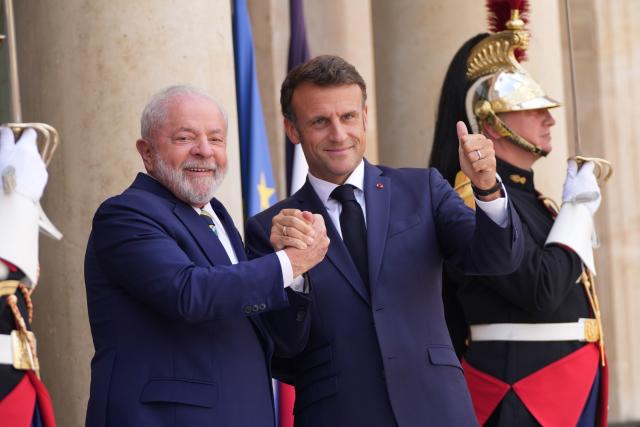
Here’s a list of people Putin is suspected of having killed
Vladimir Putin's enemies often get killed under mysterious circumstances. There are at least 13 people Putin is suspected of having assassinated.
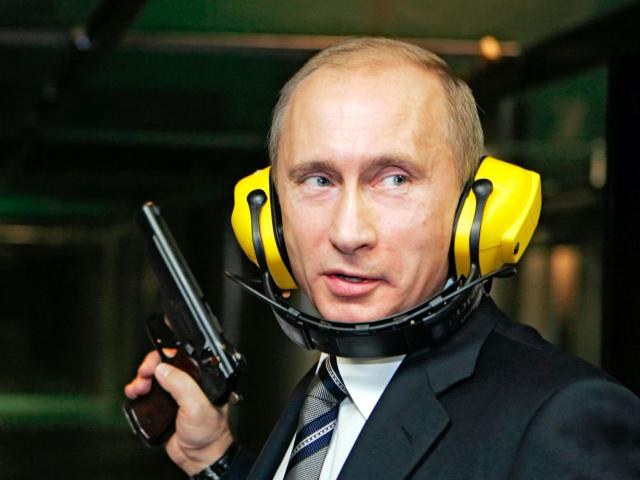
Individuals linked to Putin's government have died in violent or mysterious circumstances.
Putin, a former lieutenant colonel of the KGB and ex-head of the FSB, has been suspected of assassinating critics.
Here's a list of people who have been critical of Putin and the Russian president is suspected of assassinating:
Maganov, similar to Antov, died mysteriously by falling out the window of a Moscow hospital in September 2022, the outlet reported. However, a now-deleted statement from Lukoil said that the 67-year-old died "following serious illness."
He was discovered dead in front of an apartment building in Washington, D.C, in August 2022, according to the report. Police said he had a Florida driver's license, a black hat, just over $2500, and orange flip-flops when he was found.
Russian press minister Mikhail Lesin was found dead of "blunt force trauma to the head" in a Washington, DC, hotel room in November 2015.
For years, Lesin had been at the heart of political life in Russia and would have known a lot about the inner workings of the rich and powerful.
He was shot four times in the back just yards from the Kremlin as he walked home from a restaurant in 2015.
Natalia Estemirova was a journalist who sometimes worked with Politkovskaya.
He was shot by a masked gunman near the Kremlin in 2009. Journalist Anastasia Baburova, who was walking with him, was also shot when she tried to help him.
Alexander Litvinenko was a former KGB agent who died three weeks after drinking a cup of tea in 2006 at a London hotel that had been laced with deadly polonium-210.
Russia Latest: Turmoil in Moscow May Boost Ukraine Arms Aid
(Bloomberg) -- The brief rebellion by Russian mercenary leader Yevgeny Prigozhin is likely to bolster those in Washington seeking to boost support for Ukraine’s war effort. Most Read from BloombergStudent Loan-Relief Backers Warn Biden ‘Failure Isn’t an Option’Wagner Chief Lands in Belarus as Putin Says ‘Civil War’ AvertedUBS Preparing to Cut Over Half of Credit Suisse WorkforcePickleball Injuries May Cost Americans Nearly $400 Million This Year, According to UBSPutin Blasts Wagner ‘Traitors’ as
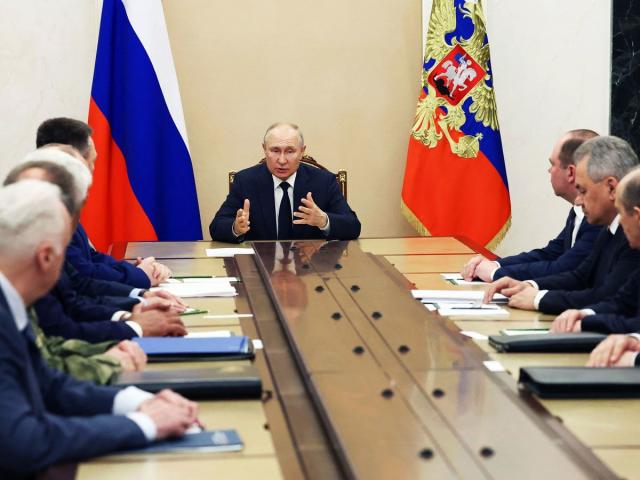
(Bloomberg) -- The brief rebellion by Russian mercenary leader Yevgeny Prigozhin is likely to bolster those in Washington seeking to boost support for Ukraine’s war effort.
Most Read from Bloomberg
Belarusian President Alexander Lukashenko confirmed Prigozhin arrived in his country days after negotiating an agreement to end the mutiny, which saw Prigozhin’s Wagner forces come within 200 kilometers (124 miles) of Moscow. Russian President Vladimir Putin earlier said his country had averted a “civil war.”
Latest Coverage
Wagner Chief Lands in Belarus as Putin Says ‘Civil War’ Averted
Wagner’s March on Moscow May Hasten End of War
Wagner’s Mutiny Creates New Questions About Its Business Empire
India Is Starting to Reach the Limits of its Russian Oil Splurge
Failed Russian Mutiny Boosts Support for More US Arms to Ukraine
All times CET:
Uprising Boosts Support for More US Arms to Ukraine (11:24 p.m.)
The 24-hour mutiny by mercenaries is likely to bolster those in Washington seeking to boost support for Ukraine’s war effort.
The failed rebellion by Yevgeny Prigozhin’s soldiers-for-hire against Russian government forces may spur bolder commitments from other NATO countries when their leaders gather next month in Vilnius, Lithuania, according to a person familiar with the Biden administration’s thinking.
Russian Rocket Strike Kills 3 in Ukraine Restaurant (10:30 p.m.)
At least three people were killed and more than 40 wounded in a Russian rocket strike that hit a restaurant in Kramatorsk, eastern Ukraine, authorities said Tuesday, according to AFP.
Ukrainian police said Russia fired two S-300 surface-to-air missiles at the city.
The Ukrainian emergency service said on Telegram that 42 people were injured in the strike, which destroyed the popular Ria Pizza restaurant.
US Slaps New Sanctions on Wagner Companies (8:30 p.m.)
The US announced new sanctions targeting the Wagner Group’s gold-mining activities in Africa as part of a bid to hamper the mercenary group’s ability to fund itself.
Tuesday’s action was the latest in a string of sanctions imposed on Wagner and Prigozhin by the US and its allies. A person familiar with the US stance, who asked not to be identified discussing internal deliberations, said the action had been planned well before Prigozhin’s forces launched the mutiny over the weekend.
Lukashenko Says He Told Prigozhin to Stop or Be Crushed (6:01 p.m.)
The Belarusian leader said he personally intervened with Putin and the founder of the Wagner mercenary group to prevent bloodshed during the weekend mutiny in Russia.
Lukashenko said he urged Putin not to kill Prigozhin and warned the Wagner chief to stop his soldiers’ advance or “you will be crushed halfway like a bug,” according to Belta.
Lukashenko Confirms Prigozhin Arrived in Belarus (3:47 p.m.)
Lukashenko said he will “help” Wagner mercenaries at their own expense if they decide to spend some time in Belarus, the state-run Belta new service reported. He also raised the prospect of discussing Wagner becoming a unit within Belarusian military.
While a significant part of Russian nuclear arms has already been delivered to Belarus, Lukashenko ruled out that the group would be taking part in guarding them.
The group is looking to set up some camps in Belarus, but so far “they are in Luhansk in their camps,” Belta cited Lukashenko as saying.
South Africa Reinforces Neutral Stance (3:30 p.m.)
South African Foreign Minister Naledi Pandor made clear after talks with her German counterpart that the armed rebellion by Wagner group mercenaries won’t alter her country’s neutral stance on Russia’s war on Ukraine.
“My understanding is: There isn’t a mutiny, there was an attempted mutiny,” Pandor told reporters at a joint news conference with Annalena Baerbock in Pretoria on Tuesday. “It will not affect our intention of continuing to engage with both” Russia and Ukraine, she added.
Russia Fully Financed Wagner Army, Putin Says (2:38 p.m.)
The Wagner group was fully financed from the state budget through the Defense Ministry, President Putin said on state television.
In the year through May, Putin said the government spent about 276 billion rubles ($3.2 billion) on salaries and insurance for Wagner as well as on payments to its owner for food and catering supplies to the army.
Without mentioning Prigozhin by name, Putin said he hoped that “no one stole anything, or, let’s say, stole just a little in the course of this work. But we will of course deal with all this.”
McCarthy Says Putin Looks Weaker After Rebellion (2:22 p.m.)
US House Speaker Kevin McCarthy said that the challenge to Putin from the Wagner group showed that he has become “isolated” and “slow to make decisions.”
In an interview Tuesday on CNBC, the California Republican said that Putin in the past would never have allowed Prigozhin to become powerful enough to mount a mutiny against the Russian government.
“Prigozhin was very public for the last month or so criticizing Putin severely like nobody else has done,” McCarthy said. “He threatened many different ways. The Putin of old, Prigozhin would have fallen out a window or something. This would have never sustained itself.”
Putin Says Russia Avoided ‘Civil War’ (1:20 p.m.)
Putin hailed Russia’s military and paid tribute to the military pilots killed during Prigozhin’s mutiny after earlier calling Wagner Group members who revolted “traitors.”
“You in fact prevented a civil war,” Putin told 2,500 troops assembled at a televised Kremlin ceremony.
Pope Francis Sends Peace Envoy to Moscow (12:30 p.m.)
Pope Francis is sending an envoy to Moscow in an effort to foster what the Vatican called “gestures of humanity” that could eventually help end Russia’s war on Ukraine. Cardinal Matteo Maria Zuppi will visit the Russian capital on Wednesday and Thursday and Corriere della Sera newspaper reported that he would meet with the head of Russia’s Orthodox Church and Russian government officials.
“The primary purpose of the initiative is to encourage gestures of humanity, that may contribute to promoting a solution to the tragic current situation, and to find ways to reach a just peace,” according to a Vatican statement.
Orban Plays Down Mutiny Impact (11:45 a.m.)
Hungarian Prime Minister Viktor Orban said the Wagner mutiny won’t have any impact on the course of the war and dismissed the idea that Putin has been weakened.
“If someone speculates that Putin might fail or be replaced, then they do not understand the Russian people and Russian power structures,” Orban was quoted as saying by Germany’s Bild newspaper in an interview.
“The structures in Russia are very stable,” he added. “They are based on the army, the secret service, the police, so it is a different kind of country, it is a military-oriented country.”
Most Read from Bloomberg Businessweek
©2023 Bloomberg L.P.
Russian militia maintains ruthless role in Africa after failed rebellion
The Russian mercenary group that briefly threatened President Vladimir Putin’s authority has for years been a ruthless force-for-hire across Africa, protecting rulers at the expense of the masses. The Wagner Group brutalizes civilians in the Central African Republic, Mali and elsewhere to crush dissent and fend off threats to their leaders’ power. In exchange, Russia gains access to natural resources and ports through which weapons can be shipped, and receives payments that enrich the Kremlin and help it fund operations elsewhere, including the war in Ukraine.
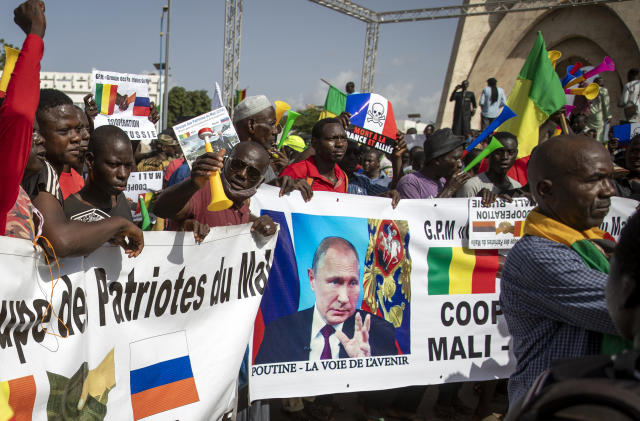
Neither Russia nor the African leaders dependent on Wagner's fighters have any interest in ending those relationships. But many questions linger in the aftermath of Wagner's stunning revolt, such as who will lead its thousands of fighters stationed across many African nations and whether Moscow will absorb these fighters into the Russian army.
“The situation is extremely volatile," said Nathalia Dukhan, senior investigator at The Sentry, a U.S.-based policy organization that published an investigative report Tuesday accusing Wagner of carrying out various human-rights abuses in African countries. "But what we have learnt from investigating and analyzing Wagner in Africa in the past 5 years is that the group is resilient, creative, fearless and predatory, so it is less likely that the Wagner empire will instantly fall like a house of cards.”
Asked whether Wagner's weekend mutiny could erode Russia’s positions in Africa, Russian Foreign Minister Sergey Lavrov told a state-run TV network that security assistance to African countries would continue. He specifically mentioned the Central African Republic and Mali, and noted that Russian government officials have maintained contact with leaders there.
Lavrov told RT he has not seen “any sign of panic or any sign of change” in African nations over the revolt against Moscow. But amid the uncertainty, there is at the very least some confusion about what exactly comes next.
In Mali, where at least 1,000 Wagner fighters replaced French troops brought in to fight Islamic extremists, the U.S. alleges that the Kremlin uses the country as a way-station for arms shipments to Russian forces in Ukraine. But the Malian government has denied using Wagner for any purpose other than training.
An officer in the Malian Air Force who spoke on condition of anonymity because he was unauthorized to comment publicly said Russian fighters play an important combat role.
“At the moment we don’t have enough pilots, and most of our military aircraft and combat helicopters are flown by Wagner’s men. If Russia asks the Malian government to stop cooperating with Wagner, we’ll be obliged to do so, because we have a greater interest in the Russian government than in Wagner,” the officer said.
In the Central African Republic, a statue in the capital, Bangui, pays tribute to Russian mercenaries who have helped keep President Faustin-Archange Touadera in power. Lavrov told RT that hundreds of Russian fighters would remain there.
Regardless of who ultimately oversees the Wagner fighters in the Central African Republic, the source of their authority remains clear, said Jordy Christopher, a special adviser to Touadera. “Prigozhin is nothing more than a pawn in the handling of the art of war, moreover he is only the tip of the iceberg,” he said.
“The African leadership of these countries need them,” said Federica Saini Fasanotti, a senior Fellow at Brookings Institution’s Center for Security, Strategy, and Technology.
Still, some experts said the revolt against the Kremlin will force African countries reliant on Wagner to pay closer attention to how they engage with Russia, where Putin faces the gravest threat to his authority since coming to power more than two decades ago.
“Developments in Russia will likely render many African countries more cautious in their engagement with Russia moving forward,,” said Ryan Cummings, director of Africa-focused security consulting company Signal Risk.
Any unexpected turn of events domestically in Russia poses potential threats to African leaders who have become dependent on its foreign fighters to stay in power, such as those in Mali and the Central African Republic.
"Any withdrawal could readily be exploited by non-state groups challenging the authority of the government in these countries,” said Cummings.
—-
Asadu reported from Abuja, Nigeria. Irwin reported from Dakar, Senegal.
The Russian General Who Stands To Gain Most From Wagner's Mutiny
Russian National Guard chief Viktor Zolotov, the longtime bodyguard of President Vladimir Putin, emerged as one of the few winners
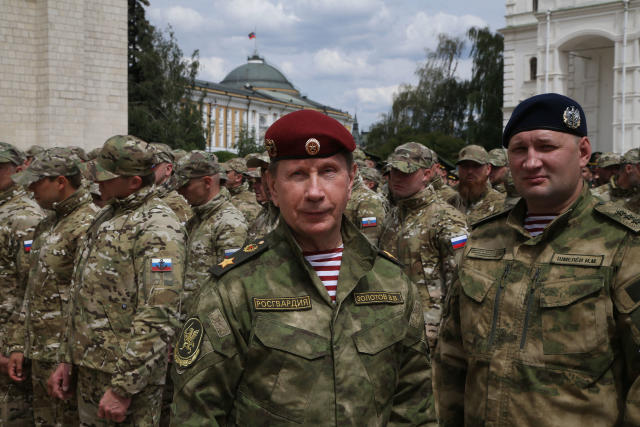
Viktor Zolotov during a meeting with officers of Russian army and secret services in Moscow, on June 27, 2023. Credit - Contributor/Getty Images
Among Putin’s henchmen, Zolotov’s background stands in sharp contrast to that of Prigozhin, the brash mutineer who ordered his men to advance on Moscow over the weekend. A convicted mugger and former hot dog vendor, Prigozhin wormed his way into Putin’s circle through a series of business deals and a willingness to do the state’s dirty work around the world, whether by interfering in American elections or propping up dictators in Africa and the Middle East. Zolotov, a creature of the system and a general of the Russian army, has spent most of his career within the Kremlin walls, starting as a bodyguard to President Boris Yeltsin in 1991 and continuing in that role under Putin.
But for Zolotov, it looks like an opportunity, and a sign of the direction that Russia might take. Threatened in Moscow and frustrated in Ukraine, Putin could fall back on the man who has been by his side from the beginning, the one responsible for staving off internal threats to the regime. For Putin, that might seem like a logical move as he steps back from the brink of a civil war. For the rest of the Russian elite, it could herald the beginning of a purge, one that Zolotov would be more than happy to conduct with the forces under his command.
How the 'masculine' talks that averted a siege on Moscow went down, according to Putin's negotiator
The Putin ally in Belarus says he persuaded Wagner's Prigozhin to back down in expletive-filled talks, warning him he'd "be crushed like a bug."
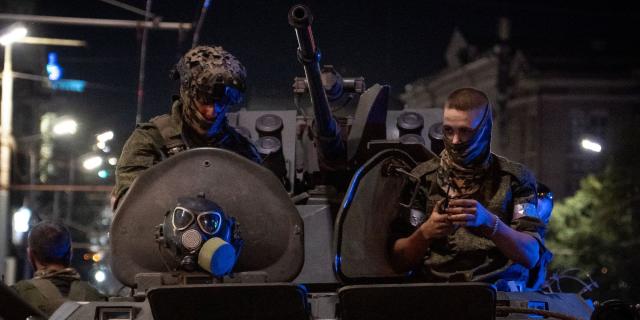
Belarus' Lukashenko shared new details about the talks that averted a crisis in Moscow.
Thousands of Wagner fighters led by Prigozhin threatened to advance on Moscow Saturday.
Lukashenko's long-winded account gives him a starring role in persuading Prigozhin to back down.
Belarusian leader Alexander Lukashenko had quite the story to tell Tuesday as he regaled a crowd of military officers about his 11th hour intervention that three days before averted a siege on Moscow.
His rambling account at the ornate Palace of Independence in Minsk offered new details on the behind-the-scenes negotiations that persuaded Yevgeny Prigozhin to withdraw his thousands of Wagner Group fighters from Russia, capping the biggest political crisis of Russian leader Vladimir Putin's rule.
On the Saturday call, Putin sounded bleak about the armed standoff with Prigozhin: "Listen, it's useless. He doesn't even pick up the phone, he doesn't want to talk to anyone," Putin said, according to Lukashenko. But Lukashenko urged him to wait to attack the rebels.
When he reached the mercenary boss at around 11 a.m., Lukashenko got an earful.
Lukashenko says he had "six or seven" rounds of phone calls, although it wasn't clear from the state-run account what was said on which calls. Prigozhin arrived in Belarus after Lukashenko's offers of safety and as of late Tuesday had not publicized his own detailed version of the negotiation that led to his exile.
"I began to ask questions," Lukashenko continued. "I asked: "Did you kill civilians, military who did not oppose you?" Prigozhin replied: "I swear, we did not hurt anyone. We occupied the headquarters. Here I am," Lukashenko recalled.
"I say: "What do you want?"
Prigozhin, again per Lukashenko: "I am not asking for anything. I just want Shoigu and Gerasimov. And I need to meet with Putin."
"No one will give you Shoigu or Gerasimov, especially in this situation. You know Putin as much as I do. Secondly, he will not meet with you, he will not even talk on the phone with you in this situation."
After a pause as the warlord weighs this, perhaps sensing his options are closing, Prigozhin replies: "But we want justice! They want to destroy us! We'll march on Moscow!"
"You'll just be crushed like a bug," Lukashenko replied.
Hours later, Prigozhin said he would accept Lukashenko's offer to withdraw but worried his thousands of fighters could be attacked by Russian troops as they retreated. Lukashenko says he "guaranteed" his safe passage, one offer that did hold up.
Brazilian President Lula’s Latest Gaffe Is Criticizing Food He Got in Italy, France
(Bloomberg) -- Brazil President Luiz Inacio Lula da Silva complained about the food he was served by his counterparts in Italy and France last week, criticizing the quality and size of the portions. Most Read from BloombergStudent Loan-Relief Backers Warn Biden ‘Failure Isn’t an Option’Wagner Chief Lands in Belarus as Putin Says ‘Civil War’ AvertedUBS Preparing to Cut Over Half of Credit Suisse WorkforcePickleball Injuries May Cost Americans Nearly $400 Million This Year, According to UBSPutin B
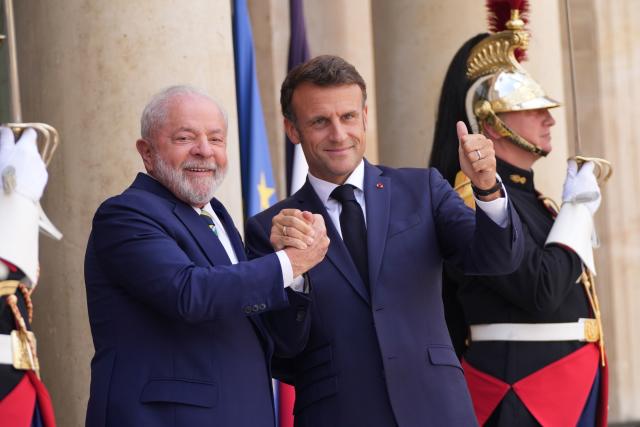
(Bloomberg) -- Brazil President Luiz Inacio Lula da Silva complained about the food he was served by his counterparts in Italy and France last week, criticizing the quality and size of the portions.
Most Read from Bloomberg
“I had lunch with [Emmanuel] Macron and with [Sergio] Mattarella,” Lula said Tuesday, referring to recent meetings with his French and Italian counterparts in Paris and Rome. “Two palace foods that were not that great.”
The former union leader added that, when traveling, he always misses having a big tray from which one can grab as much food as they want. “In any case, we’ve survived,” he said during a webcast from his official residence in Brasilia.
The French and the Italian government didn’t respond to requests for comment and didn’t give details on the menu served to Lula.
His comments — whether serious or light-heartedly said in jest — will never land well in two culinary capitals of the world that take an inordinate amount of pride in their cuisine. The remarks also add to the controversial rhetoric the leftist leader has employed since returning to the global stage, including his assertion that Joe Biden and Volodymyr Zelenskiy share part of the blame for Russia’s invasion of Ukraine.
--With assistance from Chiara Albanese.
Most Read from Bloomberg Businessweek
©2023 Bloomberg L.P.
0 Likes
